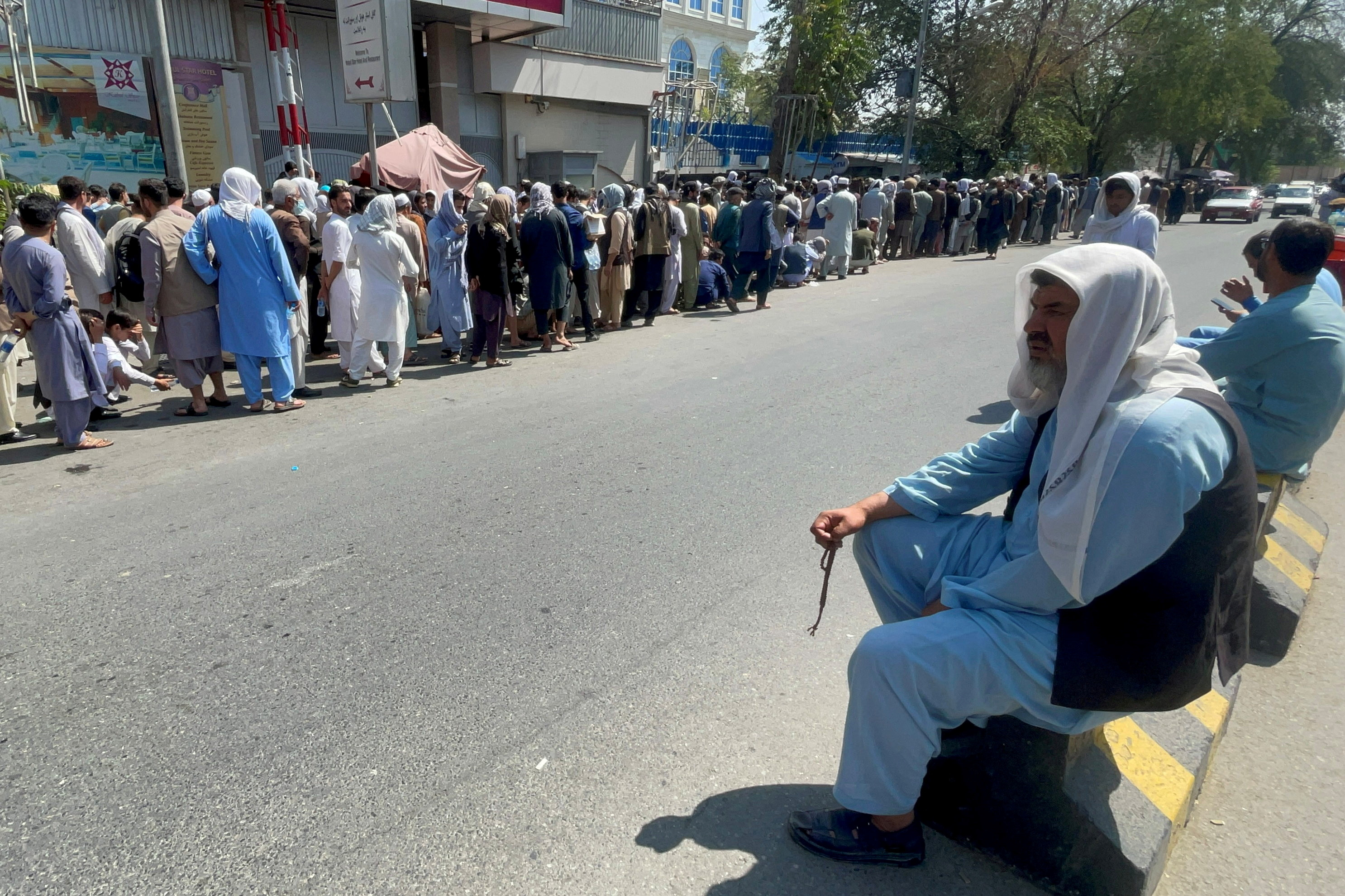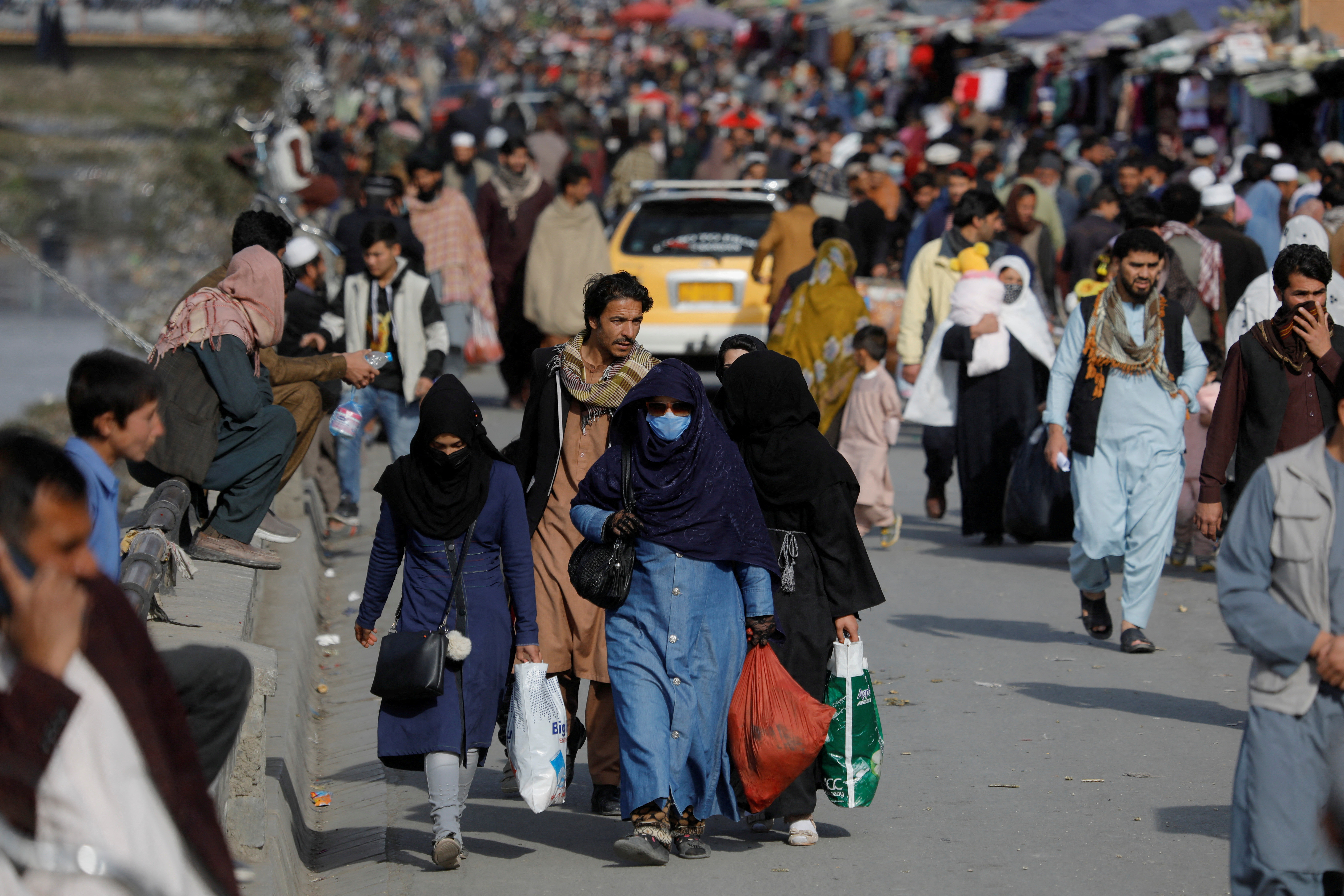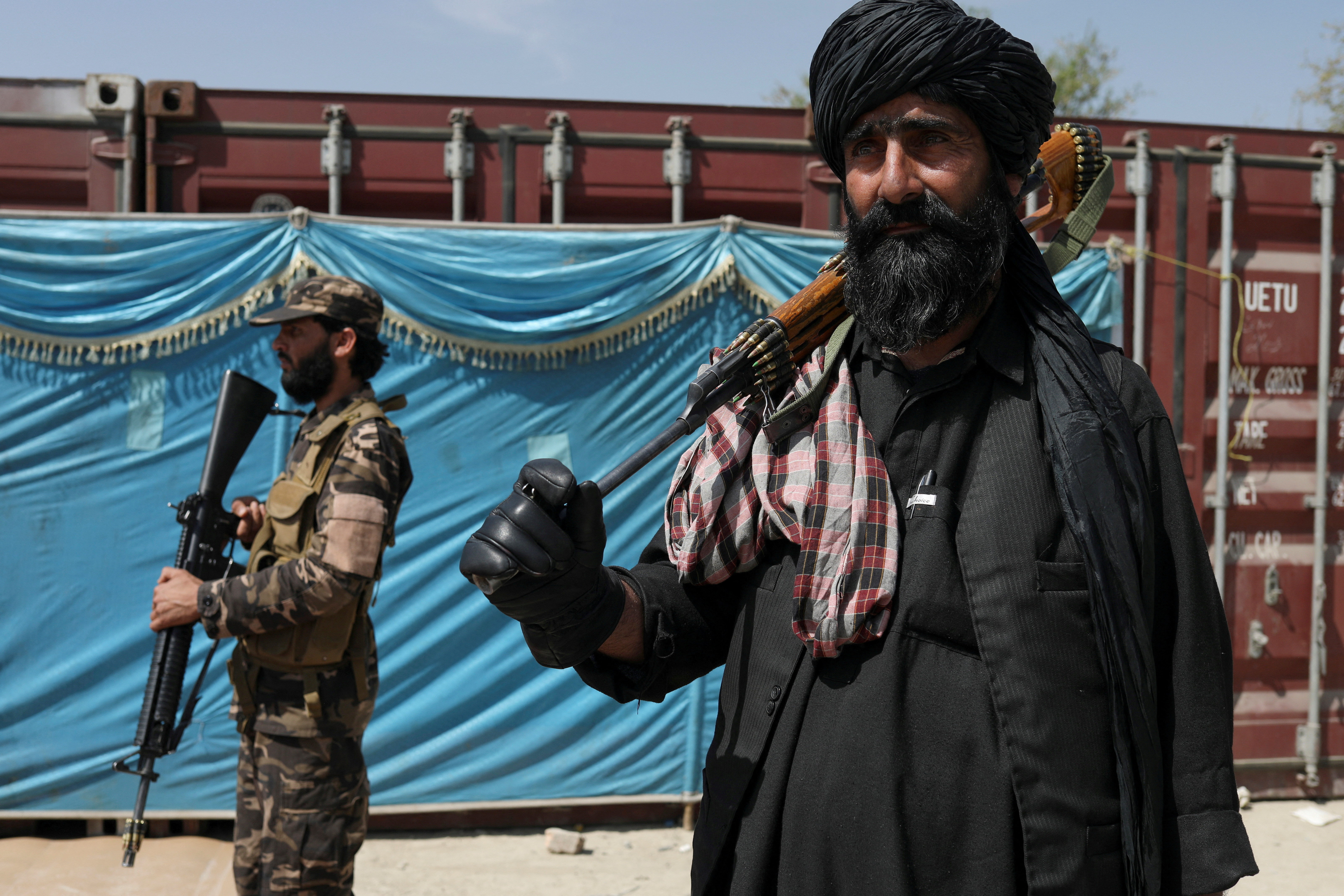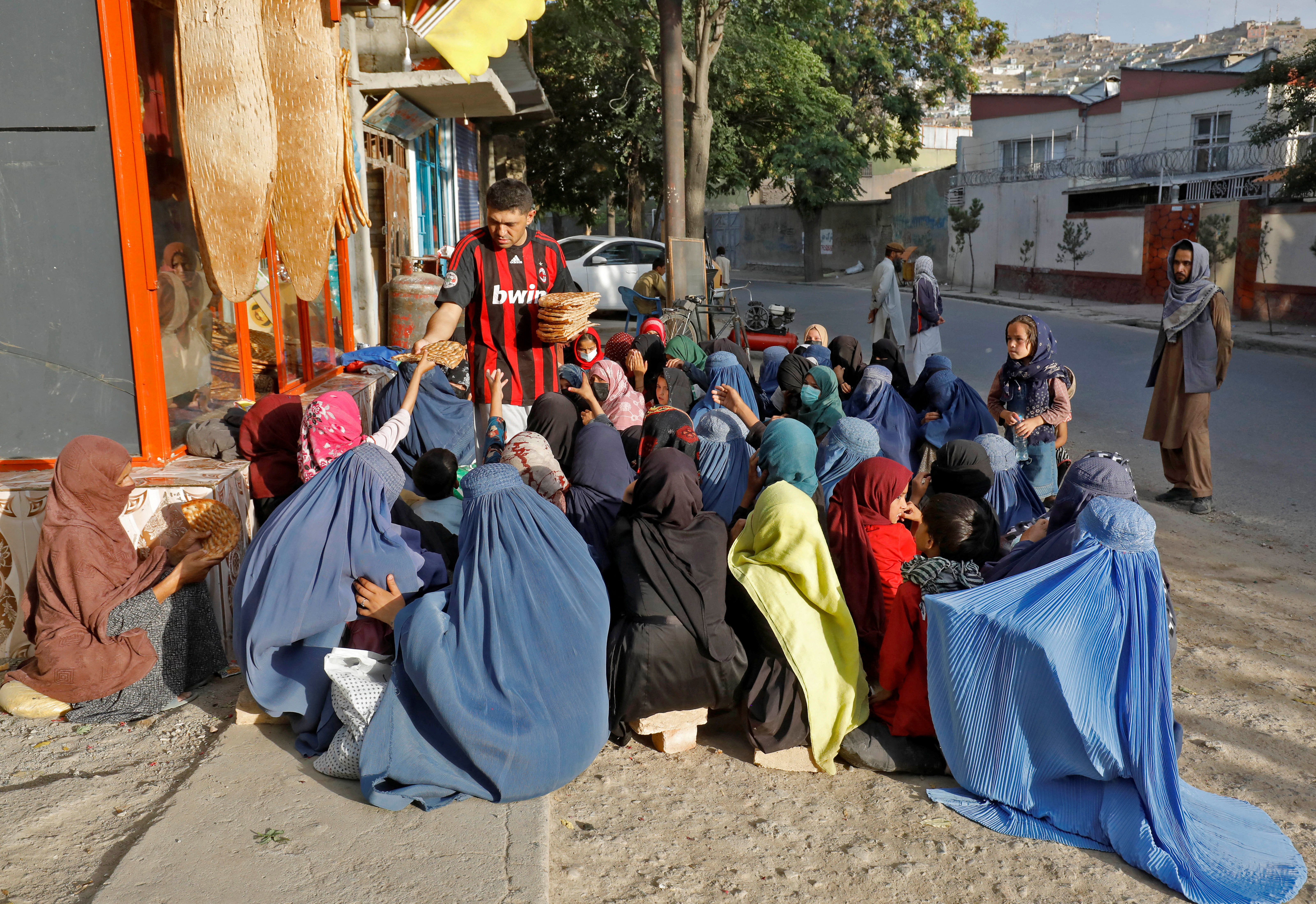In the autumn of 2001, the United States and its coalition partners initiated a rapid military campaign in Afghanistan, ultimately leading to the swift downfall of the Taliban regime. It was a time when many Taliban soldiers chose to surrender and change allegiances, welcomed by Northern Alliance fighters as if they were long-lost family members. Fast forward to the summer of 2021, and Afghanistan, a nation plagued by enduring conflict throughout its history, underwent yet another momentous shift in power dynamics. However, this time, Afghan soldiers weren't surrendering due to military defeat but rather due to their perception of an inevitable outcome. In 2001, the world marveled as the Taliban crumbled, but in 2021, it watched in dismay as the last US forces departed abruptly.
And as the Taliban regained control over the war-torn nation, they offered assurances of their evolution since their oppressive rule in the 1990s, with some dubbing this transformation "Taliban 2.0." Reputable publications like The Economist even suggested that, for many Afghans, the mullahs' regime was less ominous than feared. However, skepticism persisted, with concerns about potential disparities between promises and on-ground realities.
It became evident that the Taliban was not a monolithic entity; it was marked by factions, some adopting a more moderate stance than others. While Taliban officials projected a conciliatory image, their operators on the streets were removing depictions of women's faces from posters and conducting door-to-door searches, often leading to executions of perceived collaborators. In Kabul, a city that had undergone transformation since 2001, the Taliban were perceived less as liberators and more as a theocratic motorcycle gang imposing their will by force.
In 1996, when the Taliban last seized Kabul, Afghanistan was emerging from the ruins of a devastating Soviet occupation and a wave of civil war. The nation was impoverished, its cities lay in ruins, and its people grappled with the aftermath of violence, bloodshed, and chaos. Back then, the Taliban's rule brought a semblance of peace, albeit accompanied by strict religious edicts and limited governance.
Twenty two years ago, the US invasion of Afghanistan dismantled the existing Afghan state and initiated nation-building efforts. The initial goal was clear: prevent a repeat of the September 11th attacks planned by Al Qaeda, harbored by the Taliban. However, counterterrorism required a functioning government, leading the US and its Western allies to embark on a mission to establish democracy, build infrastructure, and educate the population. While billions were spent, much of it ended up being misappropriated, and corruption became rampant among the Afghans who controlled the show locally. The nation's leaders prioritized accumulating foreign wealth over effective governance. To rule Afghanistan, the US partnered with warlords, creating a state primarily focused on obtaining foreign aid and perpetuating a cycle of corruption.
This fragile arrangement was meant to collapse – and it did in the summer of 2021, as the hasty US withdrawal from Afghanistan plunged the capital into chaos, leaving those who had supported the US in a precarious position. Afghans who had enjoyed relative stability since 2001 found themselves yearning for order and safety, even if it meant living under Taliban rule. Nevertheless, the Afghanistan of 2021 was vastly different from the Afghanistan of 2001, with urban populations representing a quarter of the country, including technologically proficient youth. Women and girls, once denied education, had experienced significant transformations. However, the Taliban's return threatened to erase many of these gains.

The US, despite its intentions, failed to construct a fully functioning state in Afghanistan, resulting in enclaves of relative liberalism within a conservative nation. Now, the challenge lies in reintegrating these enclaves with the rest of the country, a task that may require unlikely compromises or ruthless force due to ethnic divisions and regional allegiances. Even audits conducted in the US failed to provide a resounding endorsement of the conflict and its achievements. In August 2021, a report by the Special Inspector General for Afghanistan Reconstruction (SIGAR), the US government's oversight authority on Afghanistan reconstruction, acknowledged certain successes but underscored numerous 'failures' that permeated the entire endeavor, with the cost of the war soaring to a staggering $2.313 trillion.
As the world reflects on the second anniversary of the US withdrawal, Afghanistan's future remains uncertain, and the potential for further conflict looms large. The events of the past two decades have left a complex legacy, and the challenges ahead are daunting. Experts monitoring Afghanistan's evolving situation increasingly assert that the world must come to terms with the new reality: Taliban rule in the country. They argue that the only viable option for the international community is to prevent Afghanistan from descending into another vortex of violence, chaos, and instability. Their apprehension stems from the conviction that such a scenario would entail heightened risks for the region and significant global threats. However, despite these concerns, it has become evident that the world's attention has shifted elsewhere.
Recently, the World Food Programme (WFP), responsible for providing food aid to more than 20 million Afghans, made a distressing announcement. They cited a severe shortage of funds, leading to a substantial reduction in their food assistance operations in Afghanistan—an already beleaguered nation grappling with a worsening humanitarian crisis. Hsiao-Wei Lee, the WFP country director in Afghanistan, underscored the gravity of the situation, stating, "The country is currently confronting its most severe risk of famine in a quarter of a century, and WFP's food assistance serves as the last lifeline for millions of Afghans." The United Nations agency issued a stark warning, revealing that six million Afghans are on the precipice of famine, highlighting the pressing need for international support.
Regarding how the world should deal with the Taliban now that the US is no longer engaged in a war in the country, Dr. Marvin Weinbaum, Director of Afghanistan and Pakistan Studies at the Middle East Institute, stated, “Western governments will need to provide support in some capacity to sustain this style of governance. They must acknowledge the current reality, which points towards the only viable strategy being gradual cooperation with the Taliban government, with the hope that change may eventually materialize." Dr. Weinbaum's perspectives found resonance in the thoughts of Ashok Swain, a professor of peace and conflict at Uppsala University in Sweden. Swain noted, "There are no immediate, quick-fix remedies for the situation in Afghanistan. What's imperative for stability and progress is sustained, long-term engagement, collaboration, and fostering interdependence with both the Taliban and Afghanistan as a whole." According to Dr. Swain, sustained engagement, coupled with clear objectives and responsible foreign policy, can effectively prevent further instability in Afghanistan.
 Gains in Afghanistan and the policy
Gains in Afghanistan and the policy
When it comes to US policy, the Taliban currently holds more control and influence than they did during the US invasion. Numerous experts have labeled Washington's Afghanistan policy a catastrophic failure, with some suggesting that the collapse of the 20-year mission could not have been scripted more harrowingly, even by Taliban propagandists.
As the Taliban swiftly overtook Kabul in 2021, desperate Afghans, fearing persecution, pursued departing American cargo planes down the runway, attempting to climb into the landing gear, tragically falling to their deaths. The American-backed government had capitulated without a single shot fired—a stark contrast to the assurances made by American officials, including President Joe Biden, just days earlier. Afghans were left with such dire choices that clinging to the wheels of a departing aircraft seemed their only escape. This indelible image became emblematic of the US withdrawal.
At the time of this abrupt departure, American taxpayers had poured more than $2 trillion into Afghanistan, with over 2,000 American lives lost, not to mention the countless Afghan casualties. Despite potential improvements in Afghan prosperity compared to the pre-invasion era, Afghanistan finds itself back at square one.
“The abrupt departure of the US from Afghanistan two years ago had serious consequences. The US occupation, along with the international community, led to regime changes through military means without ensuring a proper transition to a sustainable representative system,” explained Dr. Swain. Afghanistan, the Sweden-based academic said, is a prime example of the negative impacts of such actions.
Conversely, there are those who argue for Washington to condition its engagement with the Taliban on specific policy objectives. Lisa Curtis, a Senior Fellow and Director of the Indo-Pacific Security Program, expressed profound concern about the deteriorating security and human rights situation in Afghanistan during a recent webinar hosted by the Middle East Institute. Curtis, a former NSC Senior Director for South and Central Asia, highlighted the Taliban regime's strict social policies, ongoing ties with terrorist organizations, and overly narrow political governance. Several senior analysts have also aligned with Curtis's perspective, advocating for a resolute disengagement from the Taliban.

However, Professor Swain takes a different stance, emphasizing that sustained engagement can exert diplomatic pressure on the Taliban, preventing further instability and upholding international standards, especially concerning gender and counterterrorism. “Isolating Afghanistan is not a viable option, given its strategic importance and global connections. Engaging with the Taliban as Afghanistan's legitimate authority is crucial for regional stability,” he explained.
When discussing the policy of disengagement, Middle East Institute's Dr. Marvin Weinbaum acknowledged that the Taliban's unwavering ideological stance poses a significant challenge to diplomatic efforts. “They adhere to a strong, uncompromising vision of an Islamic state, making negotiations difficult.” Nonetheless, the Washington-based expert advocates for continued engagement with the Taliban, recognizing the necessity to work with the existing government and gradually push for improvements. “Considering the current circumstances, hard disengagement will not serve as a viable option,” added Dr. Weinbaum.
While acknowledging the considerable challenges involved, Dr. Weinbaum underscored the critical role of Afghanistan's stability in maintaining regional stability. “A destabilized Afghanistan, whether due to disengagement or isolation resulting from it, could trigger a more extensive crisis in the region,” he cautioned. Sharing his reservations regarding the policy of firm disengagement, Dr. Weinbaum suggested that it has not yielded positive outcomes. Instead, he argued that engaging with the Taliban is viewed as a more pragmatic approach. The expert recognized the significance of women's issues within the Afghan context but also emphasized that exclusively focusing on this aspect may not be conducive to achieving broader policy objectives. “There's no one-size-fits-all strategy for dealing with regimes like the Taliban,” Middle East Initiative’s Dr. Weinbaum added.

Failure in Afghanistan
According to the last report from SIGAR, the US government watchdog charged with auditing the work carried out in Afghanistan, there have been noteworthy improvements in certain sectors, particularly in healthcare, maternal health, and education. However, the report also underscores the challenge of achieving sustained progress in Afghanistan. The US government found itself grappling with the immense task of rebuilding a nation that had endured two decades of Soviet occupation, civil war, and Taliban rule until 2001 when the US invaded.
The abrupt and chaotic end to the US presence in Afghanistan during President Joe Biden's tenure revealed a weariness that had taken hold in America after two decades of involvement in the conflict. Beginning during former President George W. Bush's administration, the war persisted through three subsequent presidencies, becoming a defining challenge for each occupant of the Oval Office. The exit of US forces, marred by its tumultuous nature, will undoubtedly leave a lasting and, in some ways, indelible mark on President Biden's legacy.
For the Biden administration, the decision to withdraw US forces from Afghanistan was based on the assessment that the situation was deteriorating, and the momentum favored the Taliban, ultimately leading to their unopposed occupation and the fall of the Afghan government on August 30th, 2021.
“The US withdrew from Afghanistan because it recognized the failure of the Afghan governments, both under Karzai and Ghani, to establish legitimacy and deliver results with the resources provided,” explained Middle East Institute’s Dr. Weinbaum.
Dr. Swain critiqued the Afghanistan invasion, stating, "The US entered Afghanistan without clear objectives or long-term plans, resulting in a 20-year occupation without a defined mission." He argued that insufficient negotiation with the Taliban contributed to creating an unsustainable regime without legitimacy. Dr. Swain emphasized that the failure was more pronounced due to the US and the international community's attempt to impose their own ideas on Afghanistan's social structure, which didn't align with local dynamics. The Sweden-based academic believes that the two-decade-long failure in Afghanistan can be used as a learning lesson, advocating for continued engagement with the Taliban. According to Dr. Swain, such engagement will allow for diplomatic pressure on the Taliban to prevent further instability and maintain international standards, particularly regarding gender and counterterrorism.
In the years following the withdrawal of US forces from Afghanistan, the hard-fought progress achieved in the country was swiftly undone by the Taliban. These reversals now serve as potential bargaining chips in their engagement with the West. In response, Western nations have imposed sanctions on the Taliban regime, but some critics argue that these measures have yielded limited results.
"The international community's sanctions on the Taliban regime have shown limited effectiveness. While these sanctions aimed to exert pressure on the Taliban for specific actions, such as establishing a more inclusive government, there has been minimal progress toward achieving these objectives," commented Dr. Weinbaum, a seasoned expert with extensive experience in Afghanistan and Pakistan affairs. “The international community aimed to encourage the Taliban to create a more inclusive government and relax social policies, particularly regarding women's rights. These efforts have largely failed, and the Taliban has been resistant to significant changes in these areas,” the Washington-based expert added.
According to Dr. Weinbaum, engaging with the Taliban could lead to addressing common interests and challenges, even though he believes it may not lead to immediate change in the Taliban's ideology or policies. The US identified several key policy areas in Afghanistan: economic revival, humanitarian assistance, addressing human rights violations, and counterterrorism. Progress, experts commonly believe, has been mixed in these areas, and some form of engagement with the regime could result in positive gains.
Lessons in Afghanistan
During his testimony before the US Senate's Foreign Relations Committee following the 2021 withdrawal of US forces from Afghanistan, Ryan Crocker, a seasoned diplomat, known for his service in Afghanistan and Pakistan, identified the absence of strategic patience as a recurring problem in US engagements, resulting in unforeseen repercussions and emboldening adversaries. Crocker underscored the necessity for a more measured and patient approach in shaping American foreign policy.
In contrast, Professor Swain from Uppsala University, reflecting on the US invasion of Afghanistan, asserts that nations involved in foreign interventions must possess well-defined exit strategies and assume responsibility for safeguarding populations during and after regime changes—a responsibility he contends the United States did not adequately fulfill.
Dr. Weinbaum of the Middle East Institute offers a somewhat distinct perspective, cautioning against the direct application of Afghanistan's lessons to other geopolitical challenges. He highlights the distinctiveness of ideologically driven groups like the Taliban and suggests that the US should exercise caution when engaging with adversaries who may not share similar values or priorities.
Concluding his Senate testimony, Ambassador Crocker, in a rather ironic twist, highlighted what he called a symbolic Loss: "The reconstruction of Ghazi Stadium in Kabul symbolized the new Afghanistan, but how long will it take the Taliban to turn it back into a place of public punishment."
Ambassador Crocker's prophetic words were validated when, in December 2022, authorities in Afghanistan carried out a public execution. This chilling event marked the first public execution since the Taliban regained power in August 2021, underscoring their unwavering commitment to enforcing hard-line policies in the country.
